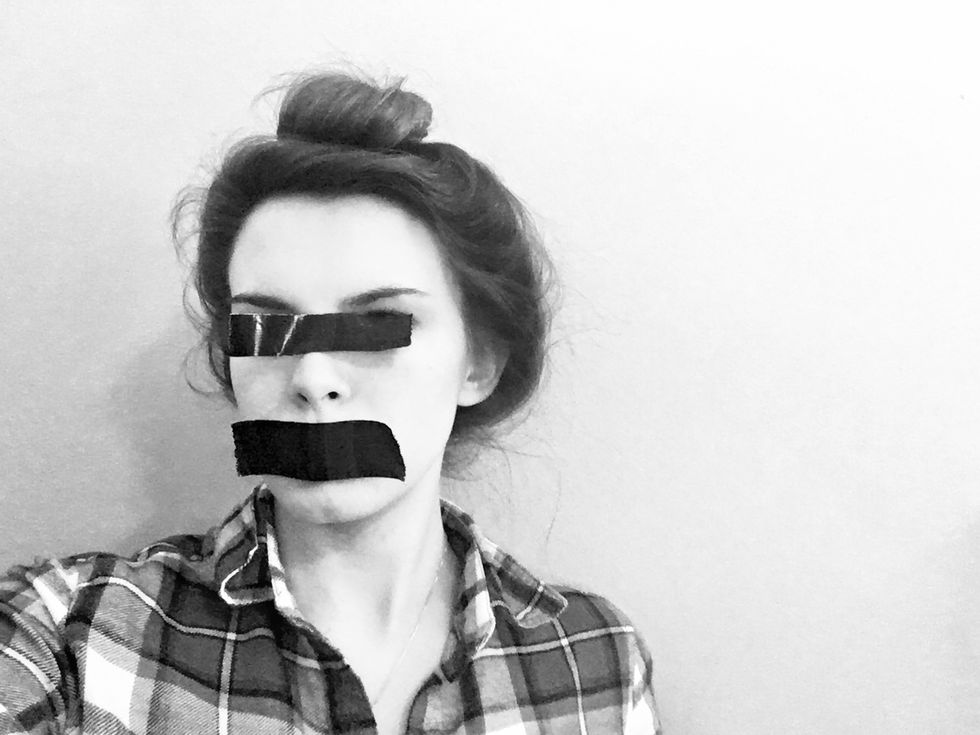We live in an age nearly centered around media. We spend hours a day reading and contributing to what is in the media. As a result we are more aware and responsive to what happens. We rely on the media concept of social media; to learn continuously about news-worthy events, and to engage with one another. Social media has allowed us to be active in conversations with our friends or strangers about topics that range from personal ideologies to big-picture events and occurrences. We have been able to express ourselves and share our thoughts, ideas and opinions. We have been able to be true to ourselves and able to reach broader and diverse groups. We have been able to spread awareness and to generate support for various causes. We have been able to be informed and to participate in things that a few years ago we would have likely had no idea was happening: (i.e. the Net Neutrality proposal). Most importantly, we have been able to do all these things purely and uncensored, with meaning and purpose and passion in our voices. Social media has allowed us to share with a raw emotion, and that is something we should be celebrating.
Unfortunately, there have been proven reports and statements about arising censorship throughout our social media platforms. Youtube has begun censoring songs and videos with “inappropriate or unsafe content.” Youtube put in action a policy in September 2017 in which videos that may stir controversy- videos with “inappropriate or offensive content’’ are placed within a limit. These videos can be shared on youtube but cannot be shared from youtube to other websites and the content creators of said videos do not get paid. Youtube creators claim this tactic will allow conversation about and sharing of controversial videos that are not quite bannable. This policy seems reasonable, despite having stirred anger from some users. However, YouTube did not stop there. More recently it has been noted that certain music videos are not offered explicitly anymore. Songs which have been widely available in the explicit version are now only available to the general audience in the censored version. Songs like Lil’ Wayne’s 2002 hit Shooter only offer censored versions. Lil Wayne’s Shooter has been on YouTube explicitly for years- just a week ago I listened to the explicit version. But suddenly without warning it is unavailable.
YouTube is not the only platform caught censoring suddenly. The number-one social media platform: Twitter recently has been censoring accounts in various ways: sending tweets with informational links straight to drafts, suspending accounts with specific content, and deleting not allowing tweets that contain “swear words” or “controversial content” in them. Twitter has seemingly been aiming this censorship at those who may be considered “conservative” as a result of their views- most noticeably gun owners. In the last week there have been frequented complaints about tweets with links, swears and “conservative content” not being shared, being sent to drafts and deleted. They are silencing us one by one, infringing on our first amendment. Twitter users have begun to fight back. Users are openly angry about these occurrences, using hastags like “#ShadowCensorship” “#InternetBillOfRights” and “#TwitterPurge.” Twitter is taking away our voices.
Social media platforms are diverting back to our old condensed ways. Instead of being able to openly speak up and out about what we believe we are being censored and even suspended for having a “conservative frame of mind.” To draft conservative tweets, to suspend accounts that type out bible verses or pro-gun stances and to only offer censored song versions is to strip us of our right to free speech and expression. We are being silenced. And we cannot let them do that to us. It will start with suspended accounts and drafted tweets but cannot end like that. We cannot silence people with differing opinions and views. We cannot act as though there aren’t “other options” or beliefs. Not everyone thinks or lives the same; we cannot expect everyone to do so. We have the right to free speech and expression for that reason. It is not fair, let alone right, to only broadcast one type of ideology or one course of opinion. We reserve the right to free speech and we will not stand to be silenced.






 The minimum wage is not a living wage.
StableDiffusion
The minimum wage is not a living wage.
StableDiffusion
 influential nations
StableDiffusion
influential nations
StableDiffusion












